UNITED STATES SPOTLIGHT
COVID-19 Impact on Gig Workers the United States
The United States gig economy grew strongly over the past decade as businesses opted for a flexible work model and workers followed suit out of preference or necessity. In parallel, a growing number of on-demand digital platforms emerged, linking gig workers to work such as ridesharing, food delivery, and task-based gigs.
Many who turn to these types of hourly and on-demand digital gig work are living on the edge, piecing together part-time and temporary work and struggling to achieve financial stability without employee benefits or a steady income. This population has faced unique obstacles throughout the COVID-19 crisis and ensuing economic dislocation.
The hardship these workers face is not new, but the current economic crisis exacerbated workers’ struggles and has shone a light on the lack of financial resilience much of the U.S. workforce faces today. As the country continues to grapple with the COVID-19 crisis, we have an opportunity to understand the challenges that gig workers face, examine their coping mechanisms, and highlight areas where fintech solutions can help to better address their needs.
As a global fintech investor committed to helping people improve their financial lives, Flourish Ventures seeks to better understand the impact of the pandemic on gig workers. We partnered with the digital worker platform Steady and research firm 60 Decibels in July and August 2020 to hear from nearly 700 people across five U.S. cities.
Impact on Livelihoods & Well-being
Gig workers have been hard hit by the COVID-19 pandemic, with 68% reporting a decline in total income.
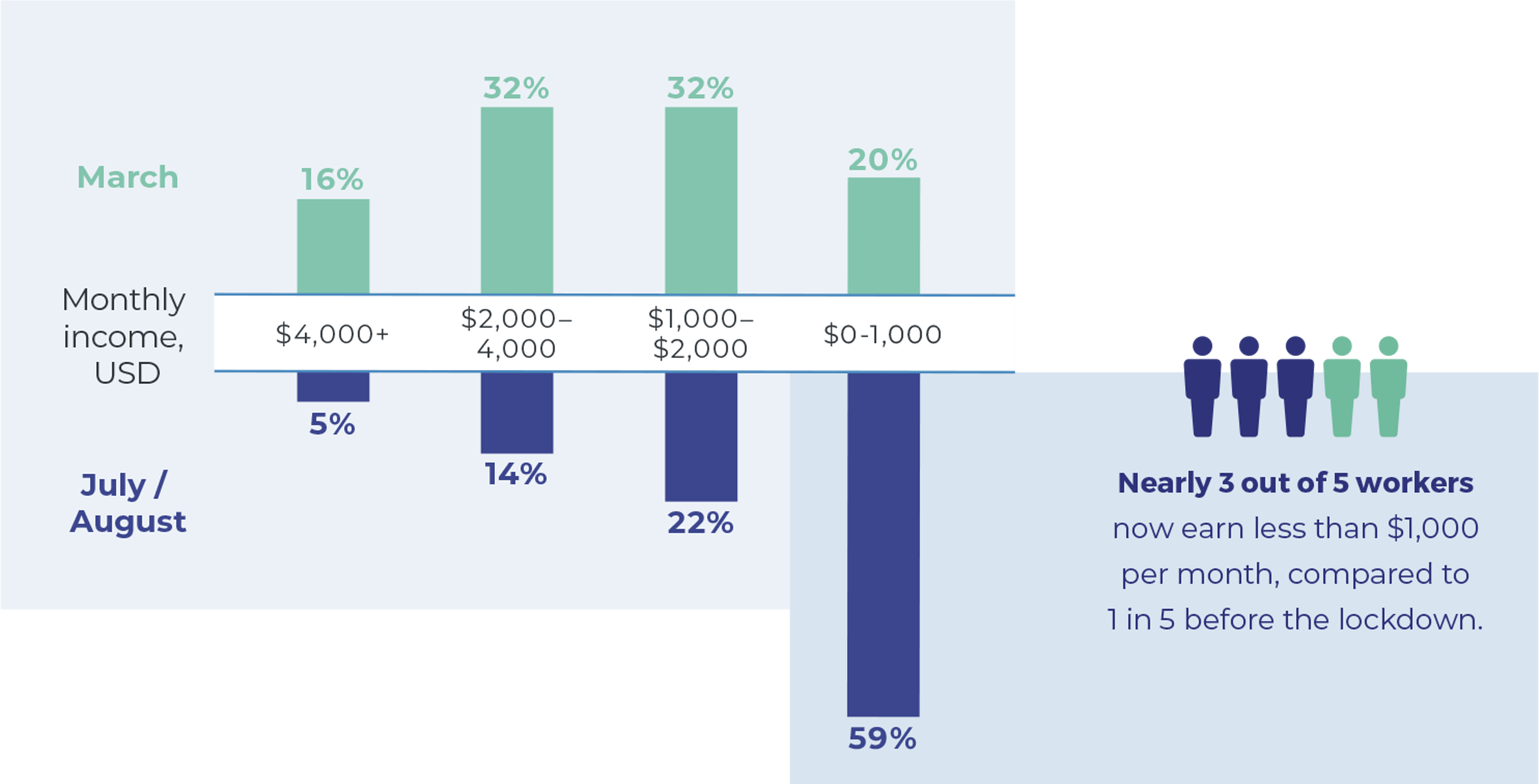


"I’m not able to work. I tested positive for COVID-19 and am now isolated. I would like to work from home but I don’t have a computer and my phone has been shut off."
– Atlanta, GA
Primary COVID-19 Concerns
Across all respondents, 89% are concerned about COVID-19, which remains both an economic crisis and a health crisis for gig workers. At the time of our survey, 45% of respondents listed ability to work as their top concern, and 29% listed their personal health or a family member’s health. Concern about the economy as a whole placed a distant fourth among survey respondents.


Financial Resilience
Gig workers are living on the edge, with a majority of respondents stating that they would struggle to get by for a month if they lost their main source of income.
If you lost your main source of income, how long could you continue to cover living expenses without borrowing money?
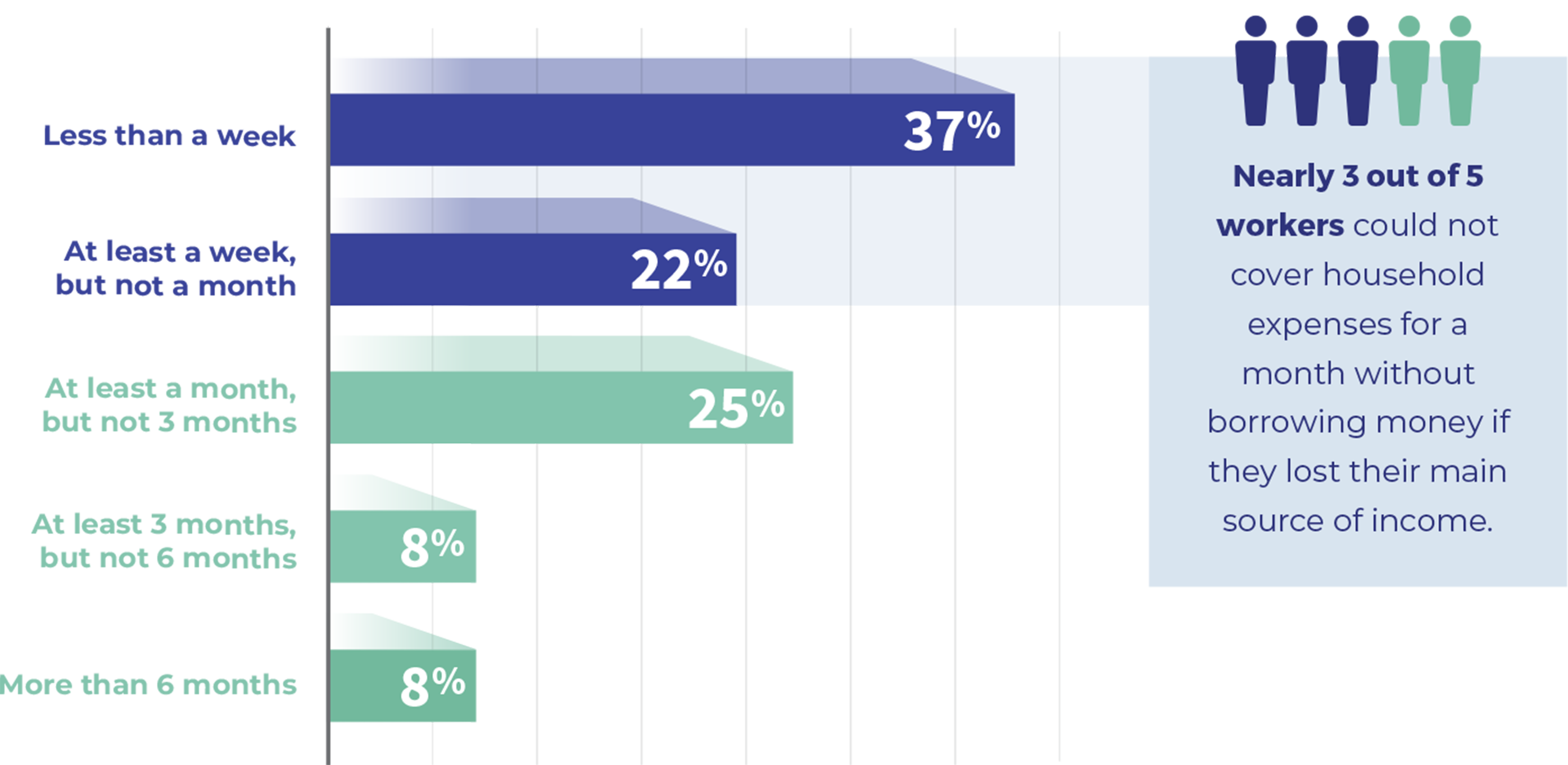


"Since COVID-19 hit I haven’t been able to go to my job or find new work. I’m a single father with no support so sometimes my son and I can’t eat and we have to sleep in churches."
– San Francisco, CA
Black and Latinx Workers Impacted Most
Black and Latinx communities have been disproportionately impacted by the crisis. This is evident in respondents’ high levels of concern and the heavier burden of supporting additional financial dependents. Black workers have also been hit hardest financially, with 61% now earning less than $1,000 per month.
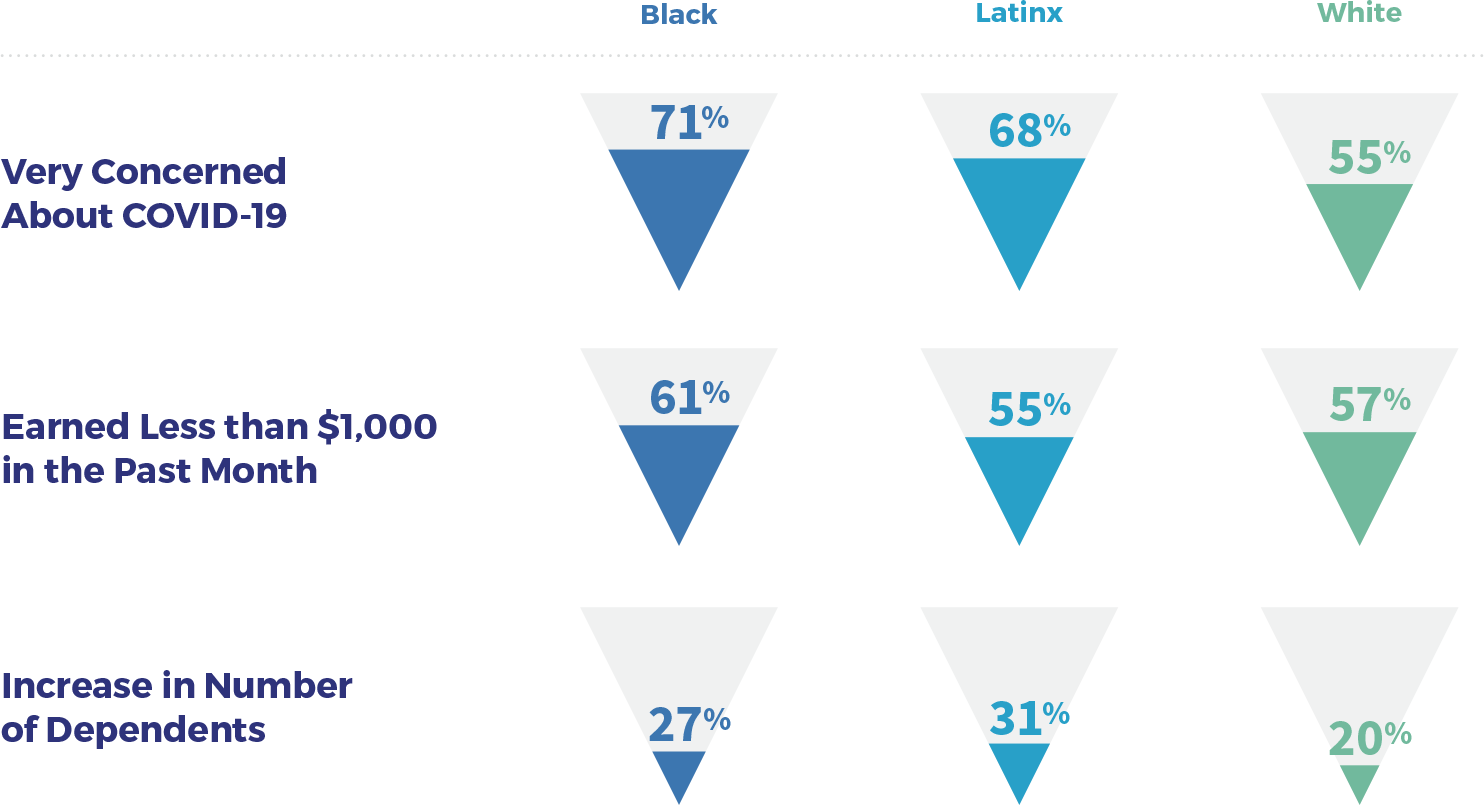

"Hope is waning by the day. I pray for a miracle."
– New York, NY
Impact Varies Meaningfully by City
Worker sentiment and financial impact vary meaningfully by city, possibly due to variance in infection rates, lockdowns, and re-opening timelines. At the time of our survey in July and August 2020, more than half of workers reported a large decline in income in Philadelphia, Atlanta, and Chicago. Correspondingly, workers in these cities were very concerned about the virus and many reported no sources of hope. In contrast, San Francisco workers reported a somewhat more positive outlook, though many reported a large income decline. New York workers reported less economic hardship and lower levels of concern.
"We are only eating two meals a day.
That is what we can afford now."
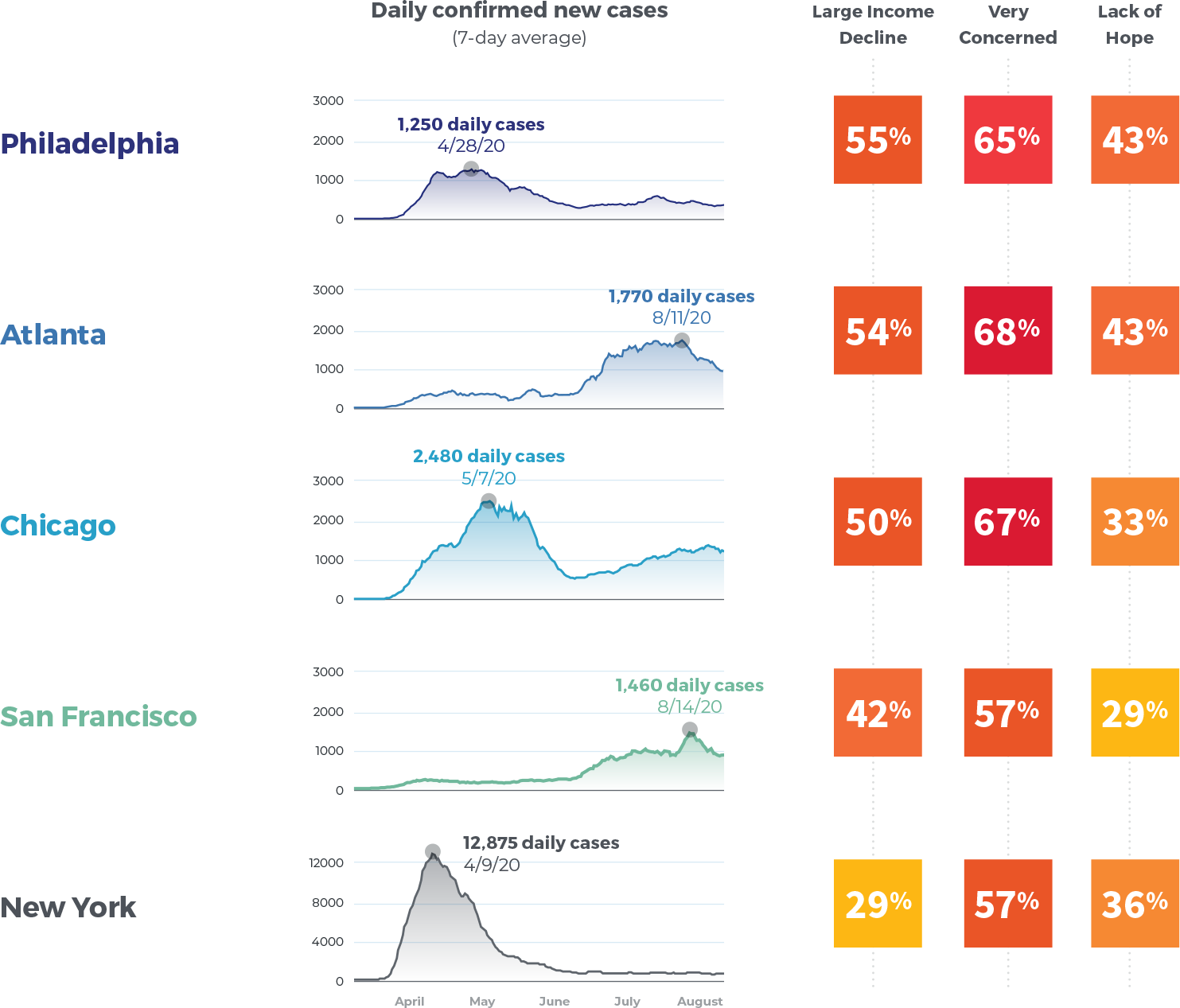

Source: The New York Times —Daily confirmed new coronavirus cases by metropolitan statistical area.
Coping Mechanisms
Gig workers have shown grit and resilience as they strive to cope with the economic impact of the COVID-19 crisis. While 63% of respondents are using savings and 55% are borrowing money, most respondents are cobbling together loans from multiple sources, with a heavy reliance on friends and family. 39% have found new or additional work, with more than a third of new work coming from online or app-based platforms. In many cases, families are going to grim lengths to make ends meet. Of the 62% who have reduced consumption, half had to cut back on food.
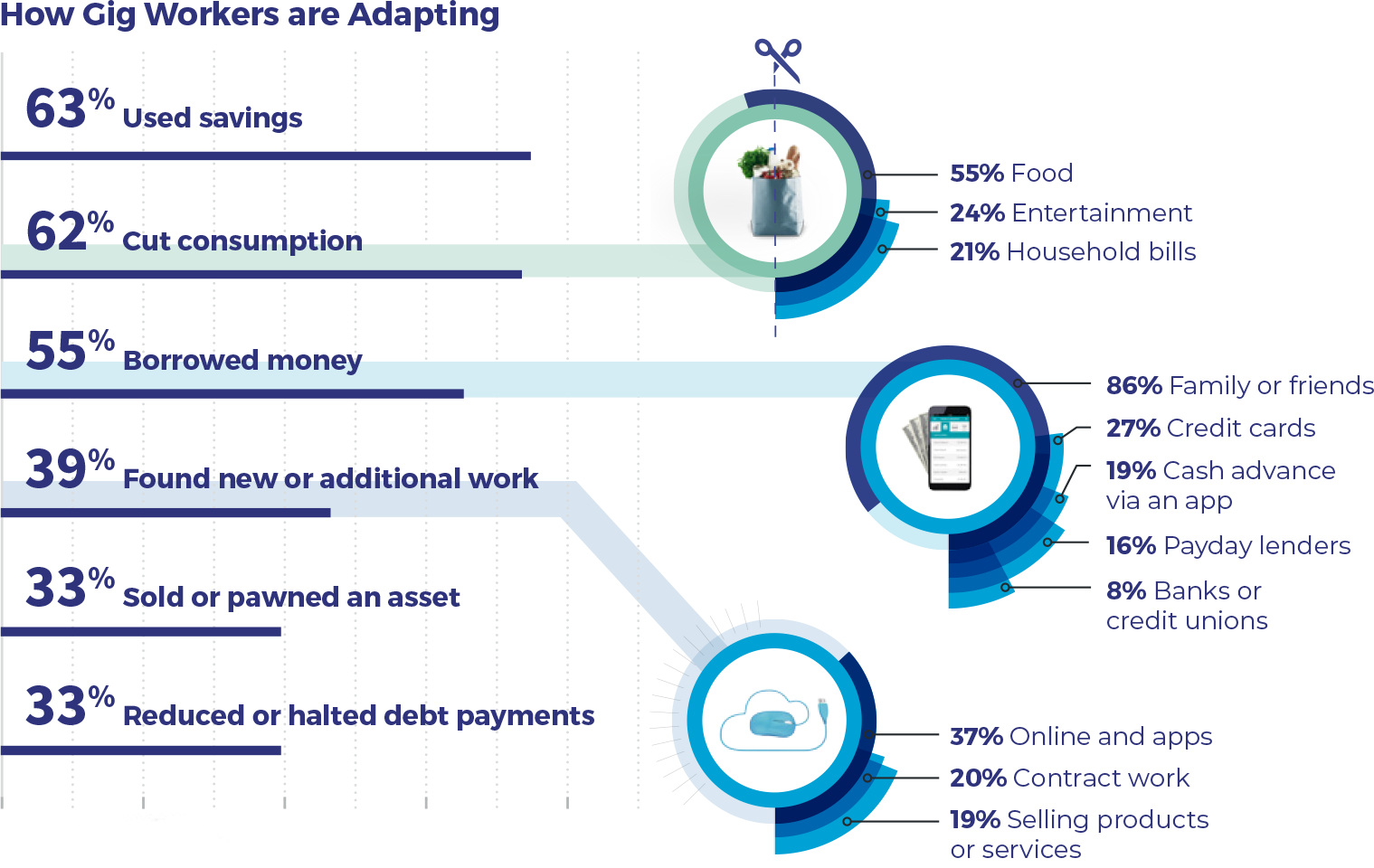


"I do whatever work I can find, mostly small gigs. It’s not enough to support myself, let alone my family."
– San Francisco, CA
The CARES Act Alleviated Some Hardship
Government relief payments through the CARES Act appear to have been a lifeline for many. 77% of respondents received financial aid through the CARES Act. While still struggling, these recipients had stronger financial resilience, less decline in quality of life, and a greater sense of hope.
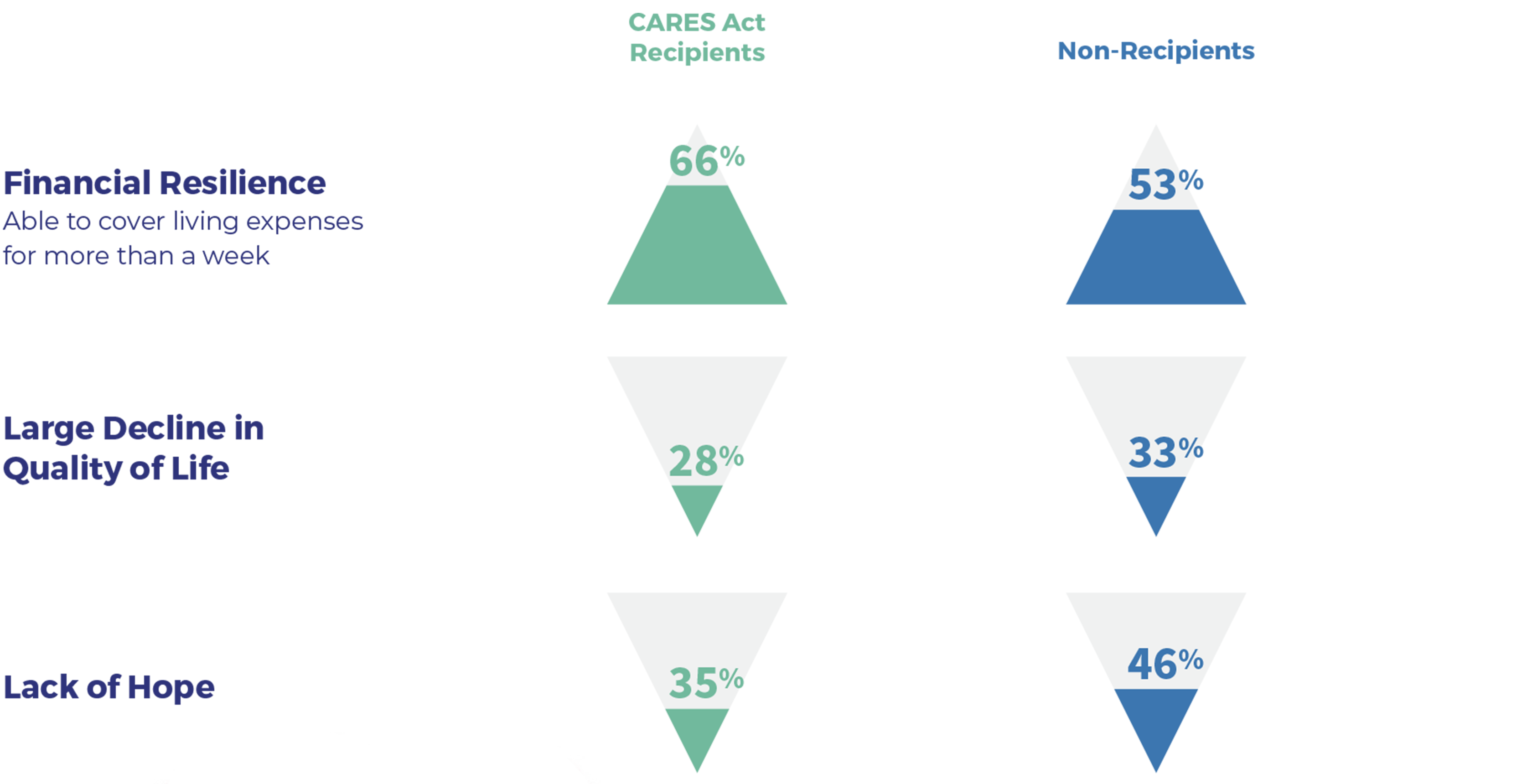


"The CARES Act gave me hope. It’s time for something to replace it."
– Atlanta, GA
Despite Challenges, Many Seek Unemployment Benefits
More than half of respondents have applied for unemployment benefits since the COVID-19 crisis began, although most struggled to navigate the application process.


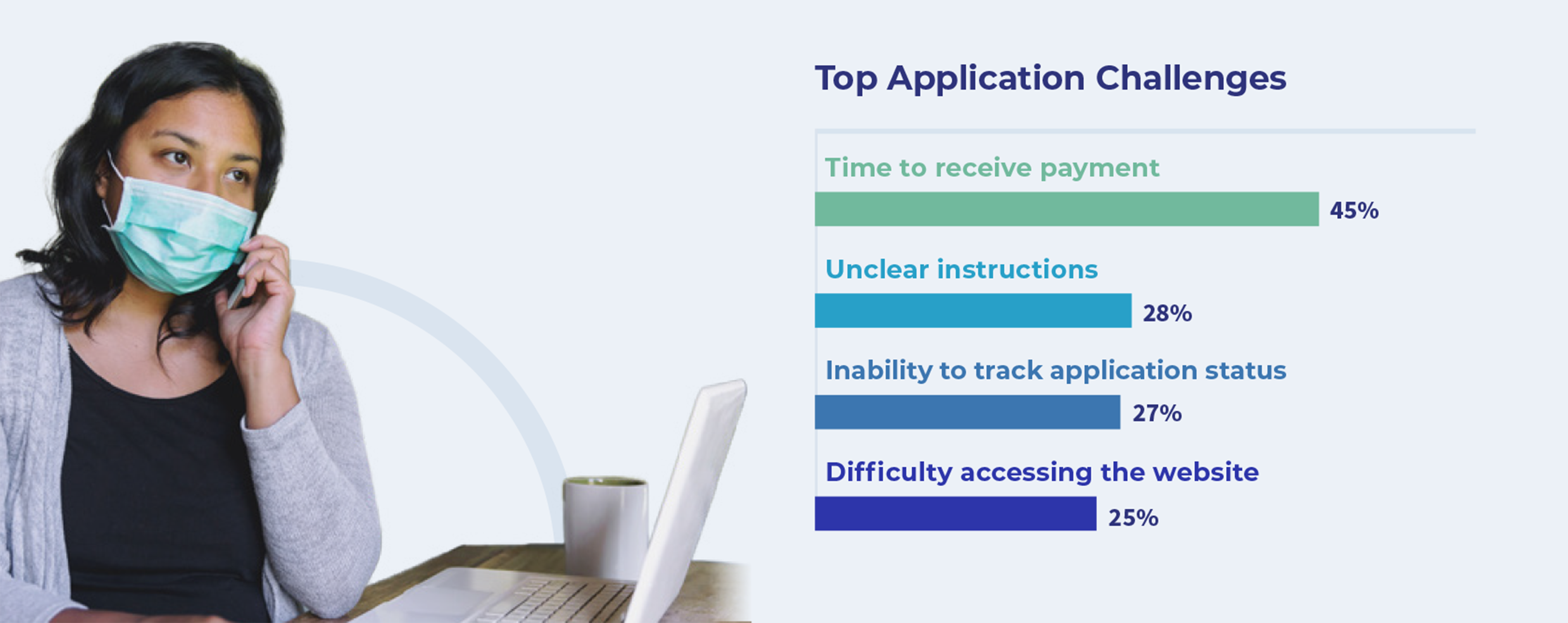

"I applied for unemployment benefits in March but have not received a response. I am past the point of desperation."
– Chicago, IL
Looking Forward
As they look beyond the COVID-19 crisis, workers have both hopes and concerns for the future. In order to have sufficient cash to manage day-to-day expenses, earning a livable wage is the number one priority. Also top of mind is the risk of not being able to work due to illness or an accident. As workers look to the future, many have expressed a desire to learn new skills or invest in their own business.

"Saving for my daughter’s education is a top priority. I want her to get the best education that I couldn’t have."
– Delivery driver, South Africa
The case for financial health solutions
Despite recent hardships, over time we expect continued growth in financial tools to support gig workers. The South Africa Spotlight provides some early insights on how platforms and financial service providers can best serve this emerging digital workforce.
Survey Methodology
Flourish Ventures partnered with research firm 60 Decibels and gig worker startups FlexClub and Picup to conduct an online survey of 605 gig workers from June 21-28, 2020. Of these respondents, there were 425 e-hailing drivers and 180 delivery workers. Underlying data can be viewed here.
Authors: Arjuna Costa, Stella Klemperer, Ameya Upadhyay